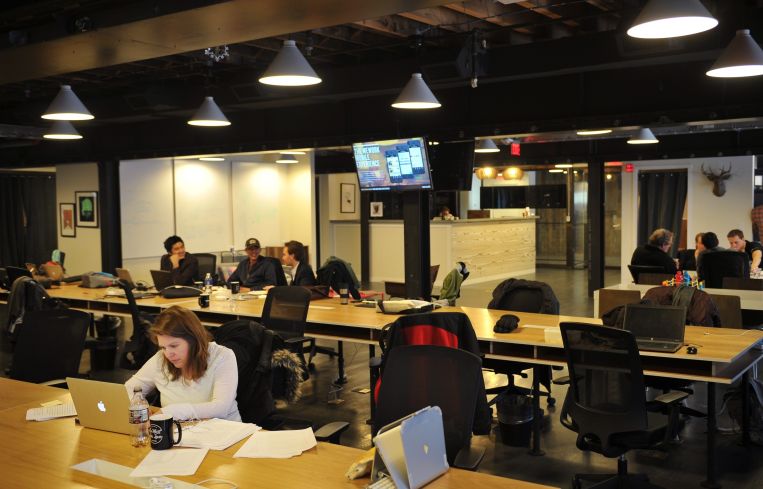Platform Lets Users Book COVID-19 Safe Coworking Spaces
By Nicholas Rizzi June 16, 2020 7:00 am
reprints
A platform that aggregates listings from multiple coworking providers will launch a tool to let users book COVID-19 safe offices.
Upflex started the “Safe Spaces” protocol that filters out coworking offices that follow its coronavirus guidelines — based on recommendations from the Center for Disease Control and World Health Organization — that include regular cleaning and the ability to maintain social distancing.
The company plans to launch the initiative when New York City starts the phase 2 of its reopening, expected in early July, and partnered with providers like WeWork and Knotel for it. More than 1,300 of the 5,000 coworking spaces on Upflex will adhere to the guidelines, said Christophe Garnier, the CEO of Upflex.
“When COVID-19 started showing up, we thought there was definitely something to be done in order to be useful to the spaces as far as figuring out what would be the right way to re-engage,” Garnier told Commercial Observer. “The idea is that those spaces are ready to welcome workers in a safe manner and they are complying to those guidelines.”
Coworking companies are signing a contract with Upflex agreeing to adhere to the Safe Spaces protocols and users will be able to leave reviews on its platform after bookings to make sure the standards are being met, Garnier said. Garnier estimated it will take providers about two weeks to bring spaces up to the guidelines.
“As we think about the future of the workplace, WeWork recognizes that physical distancing may be part of our new normal,” Nick Worswick, WeWork’s chief revenue officer, said in a statement. “That’s why we’re enhancing our spaces and services to protect the wellbeing of our global communities—ensuring that members can continue working in a safe, healthy work environment.”
Aside from the Safe Spaces protocol, Upflex partnered with Colliers International to create an online portal for Colliers allowing its clients to book coworking spaces through.
“I think COVID-19 has accelerated two major changes already in motion,” said Francesco De Camilli, the head of flexible workspace consulting for Colliers. “First is a move by occupiers to really develop more flexible and distributed workforces. The second, which I think has been even more accelerated by COVID-19, is to provide multiple options on when and where to work.”
Coworking providers have been reeling during the coronavirus pandemic as measures to halt the spread of the virus forced most of its tenants to work remotely. Companies like WeWork and Industrious have laid off staff while Knotel is in talks to give back 20 percent of its portfolio.
Members have not paid fees while WeWork is facing a potential class-action lawsuit from tenants over its decision to continue to charge the fees during the pandemic.
However, as coronavirus restrictions start to ease, De Camilli said many companies have started to eye flexible workspace options to help its staff avoid long commutes to the office.
“We’re starting to see a pretty material rise in medium- to large-occupiers who are exploring flexible offices and they’re exploring large programmatic shifts,” he said. “The clients are looking at converting large stocks of their portfolio to flex space.”
And even with some positing the death of the office after companies saw the success of its employees working from home, Garnier said he’s confident offices and coworking spaces will be here to stay.
“I think there’s going to be changes, of course, but I don’t believe people will be fully working from home in the future,” he said. “It’s to be expected for a demand for spaces that are safe for keeping teams separated.”



